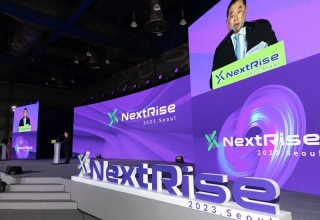
The American pop star Taylor Swift is currently performing in Singapore as part of her Eras tour, which also includes Japan and Australia. However, the Singapore leg of the tour has been surrounded by controversy, as it was revealed that the Singapore government had offered a grant to the concert organizer AEG to secure the exclusivity of the shows in South East Asia.
The grant amount was initially reported to be as high as S$24 million (£14m; $18m) for the six shows, but the culture minister Edwin Tong later clarified that it was “nowhere as high” and refused to disclose the exact figure. He also defended the decision, saying that the expected economic benefits from the concerts outweighed the size of the grant.
However, the move has angered some of the neighboring countries, especially Thailand and the Philippines, where Swift has a large fan base. The Thai prime minister Srettha Thavisin accused Singapore of paying US$2-3m per night to prevent Swift from playing elsewhere in the region. He said that he had tried to negotiate with AEG to bring Swift to Bangkok, but was rejected. In the Philippines, a lawmaker Salceda questioned Singapore’s exclusivity deal and called for a formal protest against the grant. He said that “this isn’t what good neighbors do” and that it was unfair to the Filipino fans who had to travel to Singapore to see their idol.
The impact
The Taylor Swift concert issue has raised some tensions between Singapore and its regional partners, who have accused the city-state of being selfish and insensitive to the cultural and economic interests of others. Some analysts have warned that the issue could damage the relations and cooperation among the South East Asian countries, especially in the areas of tourism, trade, and security.
Keep Reading
However, others have downplayed the significance of the issue, saying that it was unlikely to have a lasting impact on the diplomatic ties. They argued that the issue was more of a commercial and emotional one, rather than a political or strategic one. They also pointed out that Singapore had a history of supporting and hosting various cultural and sporting events in the region, such as the Formula One Grand Prix, the Youth Olympic Games and the ASEAN Summit. They said that Singapore’s role as a regional hub and leader was not threatened by the Taylor Swift concert issue, and that the countries would continue to work together on more important matters.
The reaction
The Taylor Swift concert issue has also generated a lot of reactions from the fans, the media, and the public. Many fans from the neighboring countries have expressed their disappointment and frustration at the exclusivity deal, saying that they felt left out and discriminated against by Singapore. Some of them have resorted to buying expensive tickets and travel packages to see Swift in Singapore, while others have given up on their hopes of seeing her live.
The media have also covered the issue extensively, with some outlets criticizing Singapore for its lack of transparency and generosity, and others praising it for its foresight and ambition. The public have also weighed in on the issue, with some supporting Singapore’s decision and others sympathizing with the neighboring countries. The issue has sparked a lively debate on social media, where hashtags such as #SwiftiesAgainstSingapore, #SingaporeLovesTaylor, and #TaylorSwiftErasTour have trended.
The issue has also caught the attention of Swift herself, who has not yet commented on the controversy. However, some of her fans have urged her to address the issue and to show her support for the fans in the region. Some of them have also suggested that she should add more dates and locations to her tour, or to hold a special online concert for the fans who could not attend her shows in person.

























